Mexico 1950 definitives - Architecture
Moderador: Rein
- Rein
- Usuario Colaborador

- Mensajes: 6258
- Registrado: 13 Mar 2009 15:59
- Ubicación: Leiden, Netherlands
- Contactar:
Re: Mexico 1950 definitives - Architecture
Screened photogravure on the 1936 Goebel reel-fed press and screen gauge R100, box-perforation 14, no coating, direction of paper horizontal :
1956-197x 5p-20p airmail , bi-coloured
- 1962 watermark 6mm MEX-MEX plus eagle; without optical brightening agent
- 1963 watermark 9mm MEX plus eagle - thickish paper - without optical brightening agents
- 196x watermark 6mm MEX-MEX plus eagle; WITH optical brightening agent [aka fluorescent)
- 196x watermark 9mm MEX plus eagle - thickish paper - WITH optical brightening agents [aka fluorescent)
1956-197x 5p-20p airmail , bi-coloured
- 1962 watermark 6mm MEX-MEX plus eagle; without optical brightening agent
- 1963 watermark 9mm MEX plus eagle - thickish paper - without optical brightening agents
- 196x watermark 6mm MEX-MEX plus eagle; WITH optical brightening agent [aka fluorescent)
- 196x watermark 9mm MEX plus eagle - thickish paper - WITH optical brightening agents [aka fluorescent)
- Rein
- Usuario Colaborador

- Mensajes: 6258
- Registrado: 13 Mar 2009 15:59
- Ubicación: Leiden, Netherlands
- Contactar:
Re: Mexico 1950 definitives - Architecture
Recess on the WIFAG reel-fed press since 1953; box-perforation 11, no coating, direction of paper horizontal :
1954 1p surface mail , mono-coloured
- 1954 watermark 6mm MEX-MEX plus eagle; without optical brightening agent
1954 1p surface mail , mono-coloured
- 1954 watermark 6mm MEX-MEX plus eagle; without optical brightening agent
- Rein
- Usuario Colaborador

- Mensajes: 6258
- Registrado: 13 Mar 2009 15:59
- Ubicación: Leiden, Netherlands
- Contactar:
Re: Mexico 1950 definitives - Architecture
Recess on the WIFAG reel-fed press since 1953; box-perforation 11 1/2:11 or 11, no coating, direction of paper horizontal :
1953-197x 5c-2p25 airmail , mono-coloured
- 1953 watermark 6mm MEX-MEX plus eagle; without optical brightening agent
- 1963 watermark 9mm MEX plus eagle - thickish paper - without optical brightening agents
- 196x watermark 6mm MEX-MEX plus eagle; WITH optical brightening agent [aka fluorescent)
- 196x watermark 9mm MEX plus eagle - thickish paper - WITH optical brightening agents [aka fluorescent)
The 2p and the 2p25 since 1962.
1953-197x 5c-2p25 airmail , mono-coloured
- 1953 watermark 6mm MEX-MEX plus eagle; without optical brightening agent
- 1963 watermark 9mm MEX plus eagle - thickish paper - without optical brightening agents
- 196x watermark 6mm MEX-MEX plus eagle; WITH optical brightening agent [aka fluorescent)
- 196x watermark 9mm MEX plus eagle - thickish paper - WITH optical brightening agents [aka fluorescent)
The 2p and the 2p25 since 1962.
- Rein
- Usuario Colaborador

- Mensajes: 6258
- Registrado: 13 Mar 2009 15:59
- Ubicación: Leiden, Netherlands
- Contactar:
Re: Mexico 1950 definitives - Architecture
Two values take a peculiar position in this issue of definitives after 1963!
The 1p surface mail and the 80c airmail.
Both values had been printed in recess on the WIFAG uptil then!
From 1963 onwards they got printed in photogravure!
The design was changed for both values and in particular for the 80c airmail: the "LQ" got changed in "FB".
Which reel-fed press had been used????
Perf. 14 for the 1p surface mail suggests the Goebel, but for the 80c airmail not only perf. 14 was used but also perf. 11 1/2:11 AND perf. 11!
The Goebel could be used for the 80c airmail but also the WIFAG as apart from a recess unit the press had a subsiduary photogravure unit!
The 1p surface mail and the 80c airmail.
Both values had been printed in recess on the WIFAG uptil then!
From 1963 onwards they got printed in photogravure!
The design was changed for both values and in particular for the 80c airmail: the "LQ" got changed in "FB".
Which reel-fed press had been used????
Perf. 14 for the 1p surface mail suggests the Goebel, but for the 80c airmail not only perf. 14 was used but also perf. 11 1/2:11 AND perf. 11!
The Goebel could be used for the 80c airmail but also the WIFAG as apart from a recess unit the press had a subsiduary photogravure unit!
- Rein
- Usuario Colaborador

- Mensajes: 6258
- Registrado: 13 Mar 2009 15:59
- Ubicación: Leiden, Netherlands
- Contactar:
Re: Mexico 1950 definitives - Architecture
One of the mostly used classifications is that of:
Enrique Sanchez Garcia
Magdalena Garcia
stamps@etiangui.com.mx
http://www.etiangui.com.mx
They use the term "place" irrespectively of the printing method, alas!
But it does give you some idea of the various items here!
Hidalgo 1p surface
3 and 4 are used for the photogravure versions!
Estadio 80c airmail
2, 3 and 4 are used for the photogravure versions!
It is clear that the Garcia's do not SEE the difference between the Waite&Saville prints and the WIFAG prints as the design is concerned
Enrique Sanchez Garcia
Magdalena Garcia
stamps@etiangui.com.mx
http://www.etiangui.com.mx
They use the term "place" irrespectively of the printing method, alas!
But it does give you some idea of the various items here!
Hidalgo 1p surface
1 is used for the W&S; 1 and 2 for the WIFAG1 17.2 Pie de imprenta completo, sombra vertical
2 17.5 Pie de imprenta completo, sombra vertical
3 17.2 Pie de imprenta abreviado, sombra diagonal
4 17.2 Pie de imprenta abreviado, sombra vertical
3 and 4 are used for the photogravure versions!
Estadio 80c airmail
1 is used for the W&S; 1 for the WIFAG1 36.0 Inciales "LQ" en la esquina inferior derecha, pie imprenta completo
2 37.0 Iniciales "FB", pie imprenta abreviado
3 35.8 Iniciales "FB", pie imprenta abreviado
4 37.0 Iniciales "FB", pie imprenta abreviado, y cifras gruesas
2, 3 and 4 are used for the photogravure versions!
It is clear that the Garcia's do not SEE the difference between the Waite&Saville prints and the WIFAG prints as the design is concerned
- Rein
- Usuario Colaborador

- Mensajes: 6258
- Registrado: 13 Mar 2009 15:59
- Ubicación: Leiden, Netherlands
- Contactar:
Re: Mexico 1950 definitives - Architecture
The 80c airmail "FB" in screened photogravure has two [?] design sizes:, both here with perf. 11. Align the middle of each stamp and you will see how the second stamp extends both on the left side as well as on the right side.
BTW, did the WIFAG have red sheet-counters???
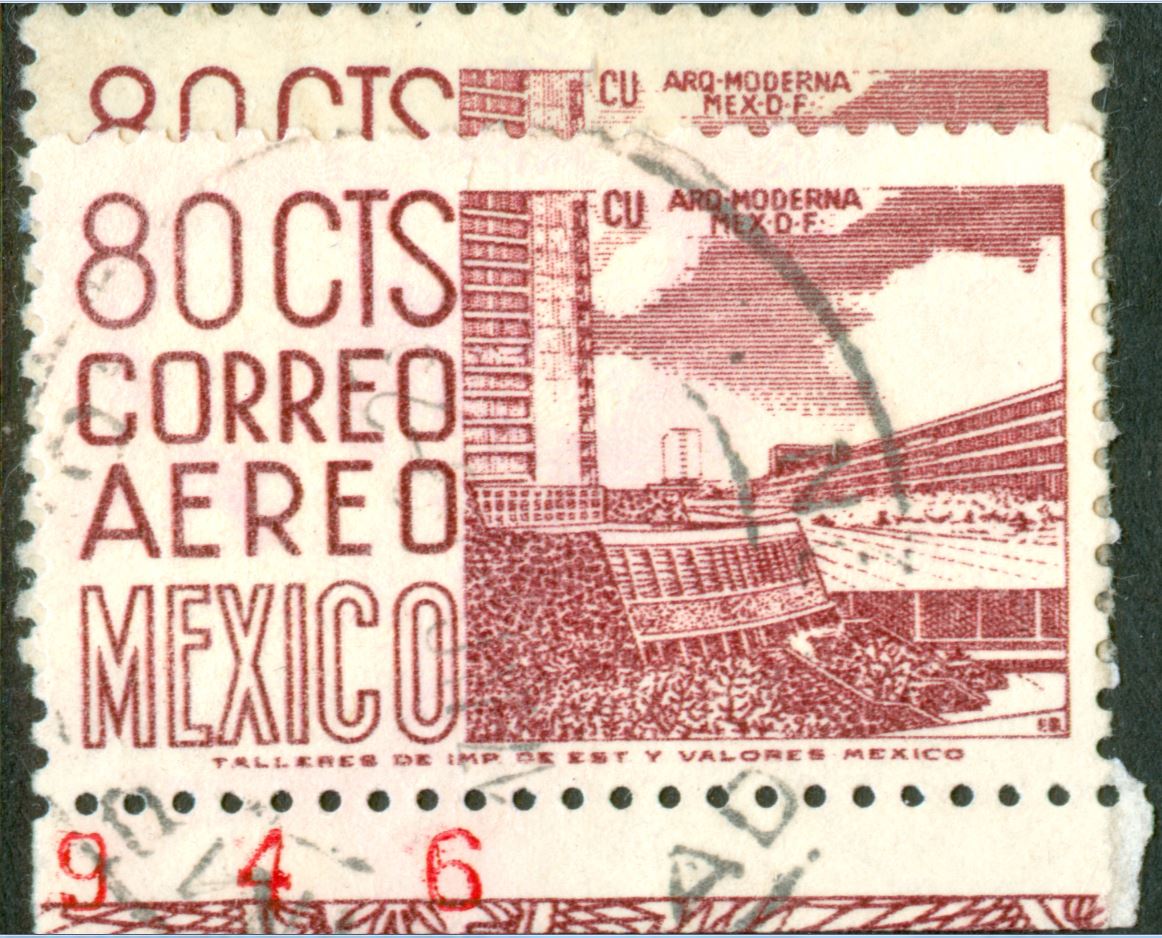
BTW, did the WIFAG have red sheet-counters???

- Rein
- Usuario Colaborador

- Mensajes: 6258
- Registrado: 13 Mar 2009 15:59
- Ubicación: Leiden, Netherlands
- Contactar:
Re: Mexico 1950 definitives - Architecture
Perf. 14 and perf. 11 1/2:11 aligned in the middle:
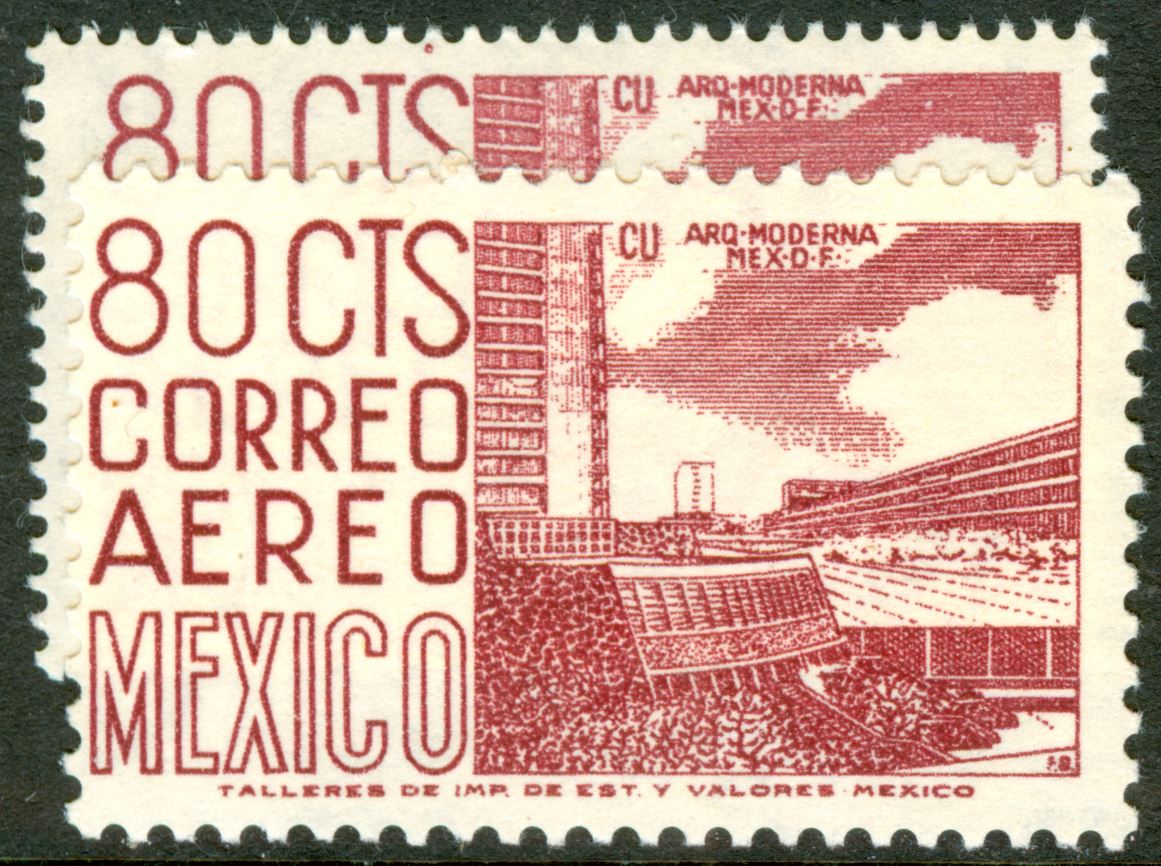

- Rein
- Usuario Colaborador

- Mensajes: 6258
- Registrado: 13 Mar 2009 15:59
- Ubicación: Leiden, Netherlands
- Contactar:
Re: Mexico 1950 definitives - Architecture
Perf. 14 [of 1963!] , perf. 11 and oerf. 11 1/2:11. The latter the only "broad" design!
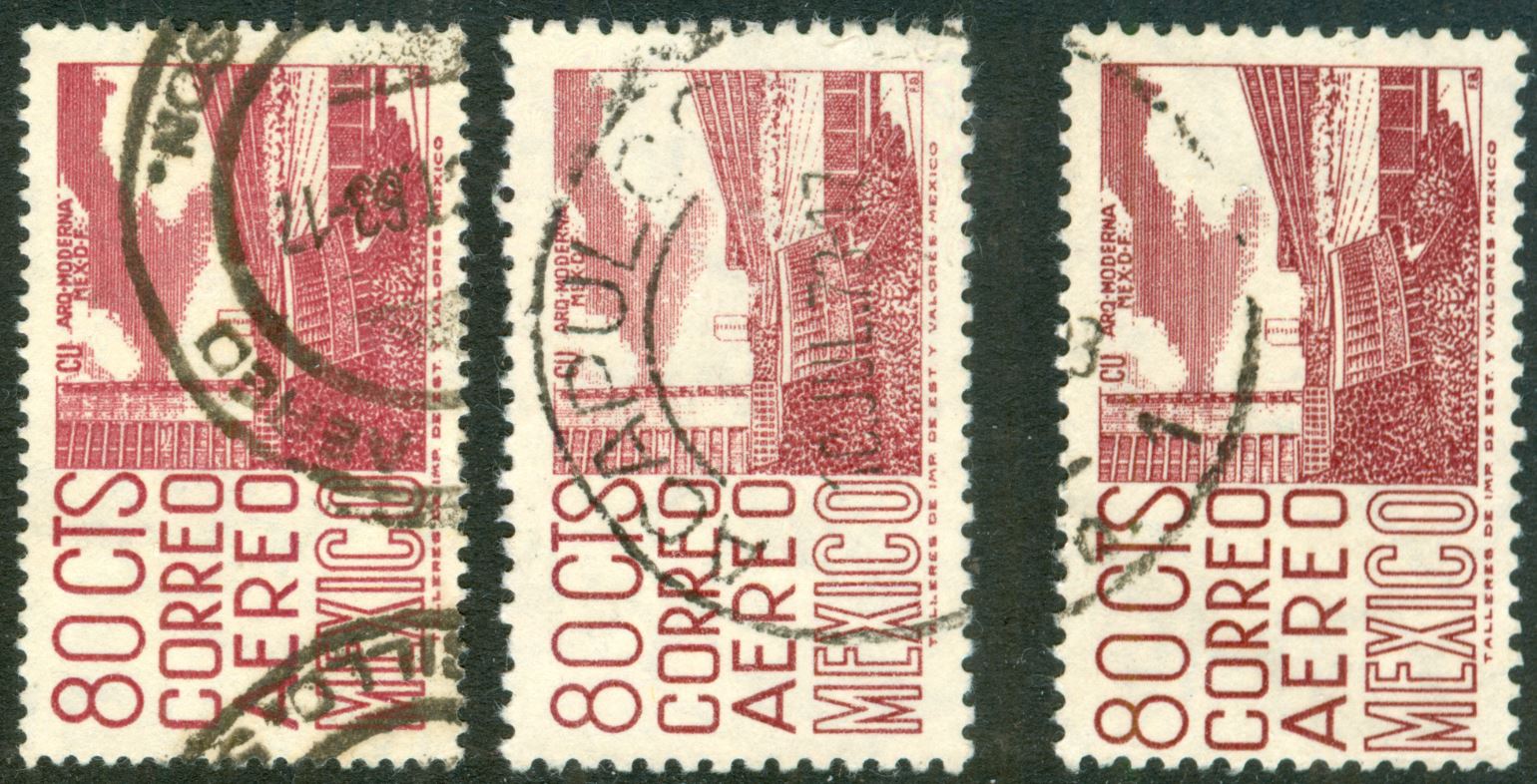

- Rein
- Usuario Colaborador

- Mensajes: 6258
- Registrado: 13 Mar 2009 15:59
- Ubicación: Leiden, Netherlands
- Contactar:
Re: Mexico 1950 definitives - Architecture
There is an inconsistency between the classification of papers / subseries of the 1950-1975 defintives and the 1975-1993 definitives:
The phosphorescent coated papers in the Archtecture and Archeology emission are
- paper # 8 : Watermark = "Mex - Mex" , Phosphorescent, Glossy ( 1974 - 1975)
- paper # 9 : Without watermark, Phosphorescent, Glossy ( 1975 )
The phosphorescent coated papers in the Mexico Exporta emission are
- paper # 1 : Papel mediano ( 85g / m2 ), Sin filigrana, Satinado, AN = FO amarillo, RV = RF violaceo liso ( 1975 - 1981 )
- paper #2 : Papel mediano ( 97g / m2 ), Filigrana = "Mex-Mex", Satinado, AN = FO amarillo, RV = RF moteado azul-amarillo ( 1977- 1982 )
- paper #4 : Papel mediano ( 97g / m2 ), Sin filigrana, Satinado, AN = FO amarillo, RV = RF moteado azul-amarillo ( 1980 - 1983)
Phosphorescent coated paper was around since 1973! Paper 2 it was! And without watermark- both paper 4 and paper 1 - started in 1975 subsequently as the commemoratives tell us!
So why don't we have paper 9 split up into two types of paper????? Like #1 and #4???
The phosphorescent coated papers in the Archtecture and Archeology emission are
- paper # 8 : Watermark = "Mex - Mex" , Phosphorescent, Glossy ( 1974 - 1975)
- paper # 9 : Without watermark, Phosphorescent, Glossy ( 1975 )
The phosphorescent coated papers in the Mexico Exporta emission are
- paper # 1 : Papel mediano ( 85g / m2 ), Sin filigrana, Satinado, AN = FO amarillo, RV = RF violaceo liso ( 1975 - 1981 )
- paper #2 : Papel mediano ( 97g / m2 ), Filigrana = "Mex-Mex", Satinado, AN = FO amarillo, RV = RF moteado azul-amarillo ( 1977- 1982 )
- paper #4 : Papel mediano ( 97g / m2 ), Sin filigrana, Satinado, AN = FO amarillo, RV = RF moteado azul-amarillo ( 1980 - 1983)
Phosphorescent coated paper was around since 1973! Paper 2 it was! And without watermark- both paper 4 and paper 1 - started in 1975 subsequently as the commemoratives tell us!
So why don't we have paper 9 split up into two types of paper????? Like #1 and #4???
- Rein
- Usuario Colaborador

- Mensajes: 6258
- Registrado: 13 Mar 2009 15:59
- Ubicación: Leiden, Netherlands
- Contactar:
Re: Mexico 1950 definitives - Architecture
According to Arturo de la Garza in his book on the Architectura y Archeolouia, in the 12th series:
„Bajo los efectos de la Luz Ultravioleta este nuevo papel sin marca de agua presenta dos efectos por el anverso igual de una respuesta Blanca y otra amarilla y por el reverso presenta tres respuestas diferentes:
Tipo I, - No se trasluce con diferentes tonalidades azules muy homogéneo
Tipo II. - No se trasluce en tonalidades lila azulados moteado muy heterogéneo
Tipo III. - Se trasluce con una respesta Azul amarillento obscuro muy irregular su respuesta“
The 80c correos has only tipo I and so have the 5p, 10p and 20p correos; the 5p and 10paereo also have tipo I only.
How do these 3 tipos relate to the Mexico Exporta papers????
Of the above my 5p and 10p aereo are paper #1! So may I draw my conclusion that Tipo I = paper #1????
„Bajo los efectos de la Luz Ultravioleta este nuevo papel sin marca de agua presenta dos efectos por el anverso igual de una respuesta Blanca y otra amarilla y por el reverso presenta tres respuestas diferentes:
Tipo I, - No se trasluce con diferentes tonalidades azules muy homogéneo
Tipo II. - No se trasluce en tonalidades lila azulados moteado muy heterogéneo
Tipo III. - Se trasluce con una respesta Azul amarillento obscuro muy irregular su respuesta“
The 80c correos has only tipo I and so have the 5p, 10p and 20p correos; the 5p and 10paereo also have tipo I only.
How do these 3 tipos relate to the Mexico Exporta papers????
Of the above my 5p and 10p aereo are paper #1! So may I draw my conclusion that Tipo I = paper #1????
- Rein
- Usuario Colaborador

- Mensajes: 6258
- Registrado: 13 Mar 2009 15:59
- Ubicación: Leiden, Netherlands
- Contactar:
Re: Mexico 1950 definitives - Architecture
Sometimes in an engraving a small detail may slip in that was not intented,not even engraved but just accompanied the moletting of the printing cylinder!! The 50c aereo in the WIFAG printings show such minor detail that everyone will overlook! 
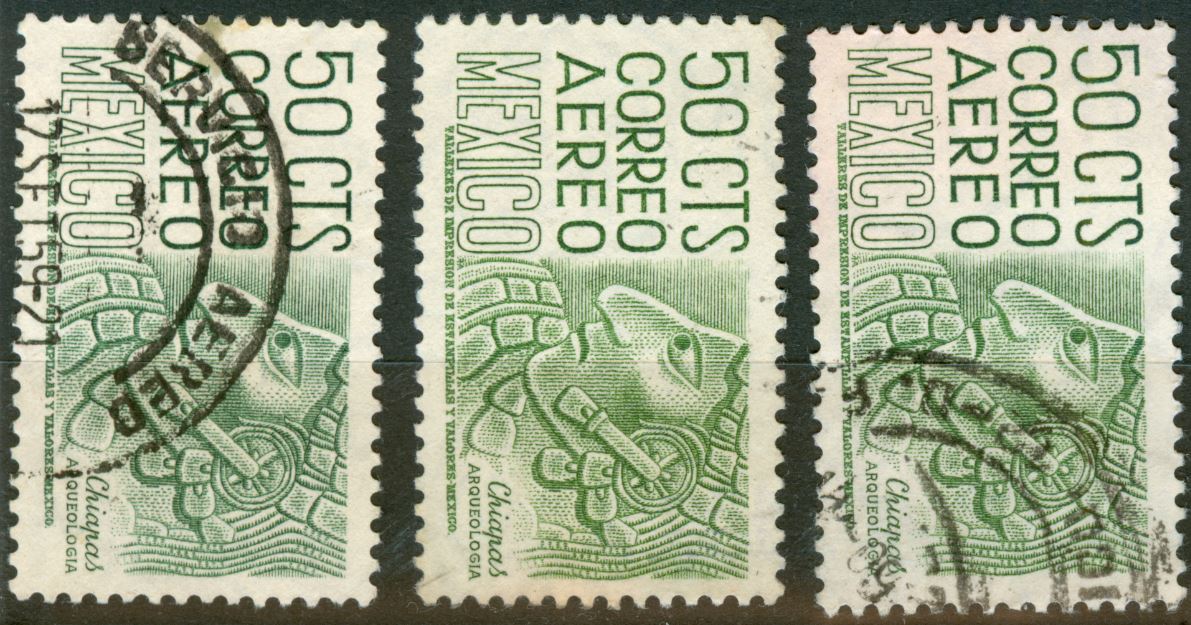
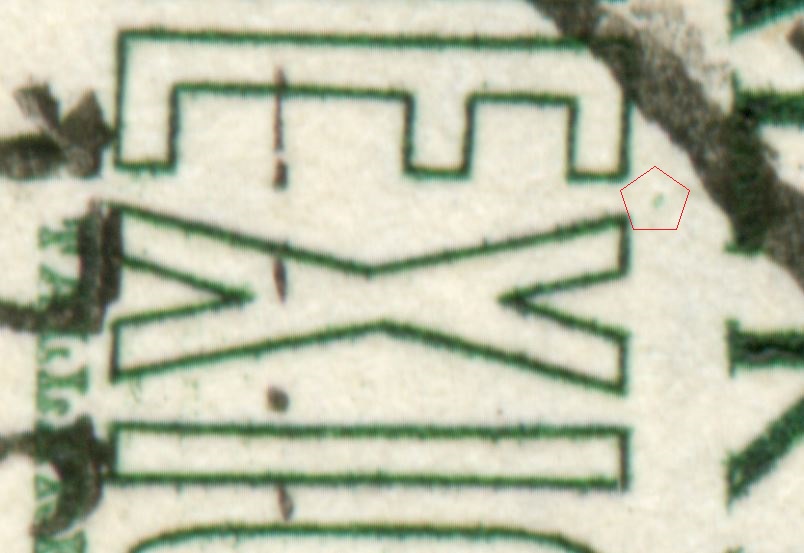
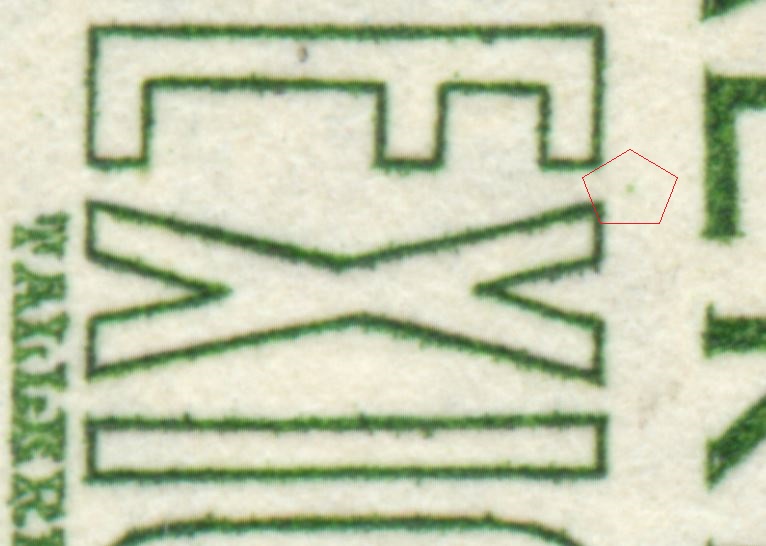
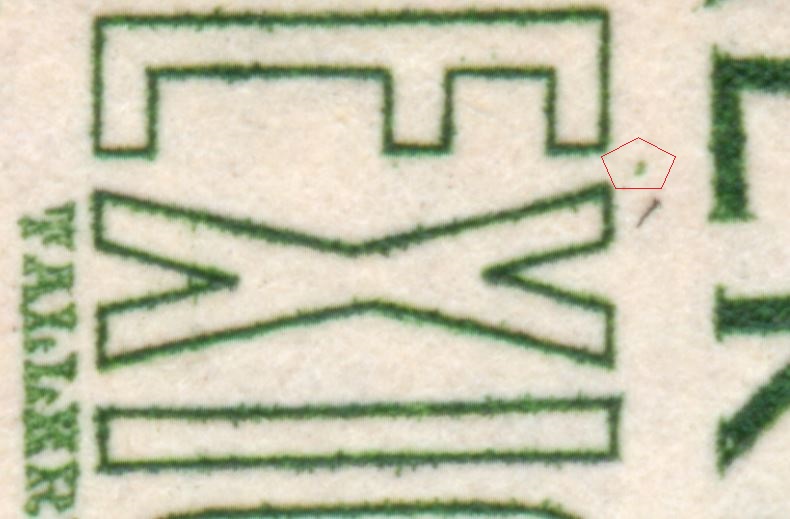




- Rein
- Usuario Colaborador

- Mensajes: 6258
- Registrado: 13 Mar 2009 15:59
- Ubicación: Leiden, Netherlands
- Contactar:
Re: Mexico 1950 definitives - Architecture
The higher airmail values in photogravure on coated paper do not have the same screen gauge. The 5p i.e. its text has R100, the 10p and 20p have R125 [or more dense?]. The 5p and 10p are on paper #1A , the 20p on paper #1B, all belong to subset 9 [phosphorescent coated paper without watermark]....
Papel #1A is what is called Americano by Mexico Export collectors, papel #1B has not yet been recognized as such by M.E. collectors but probably comes from Samuel Jones,UK.
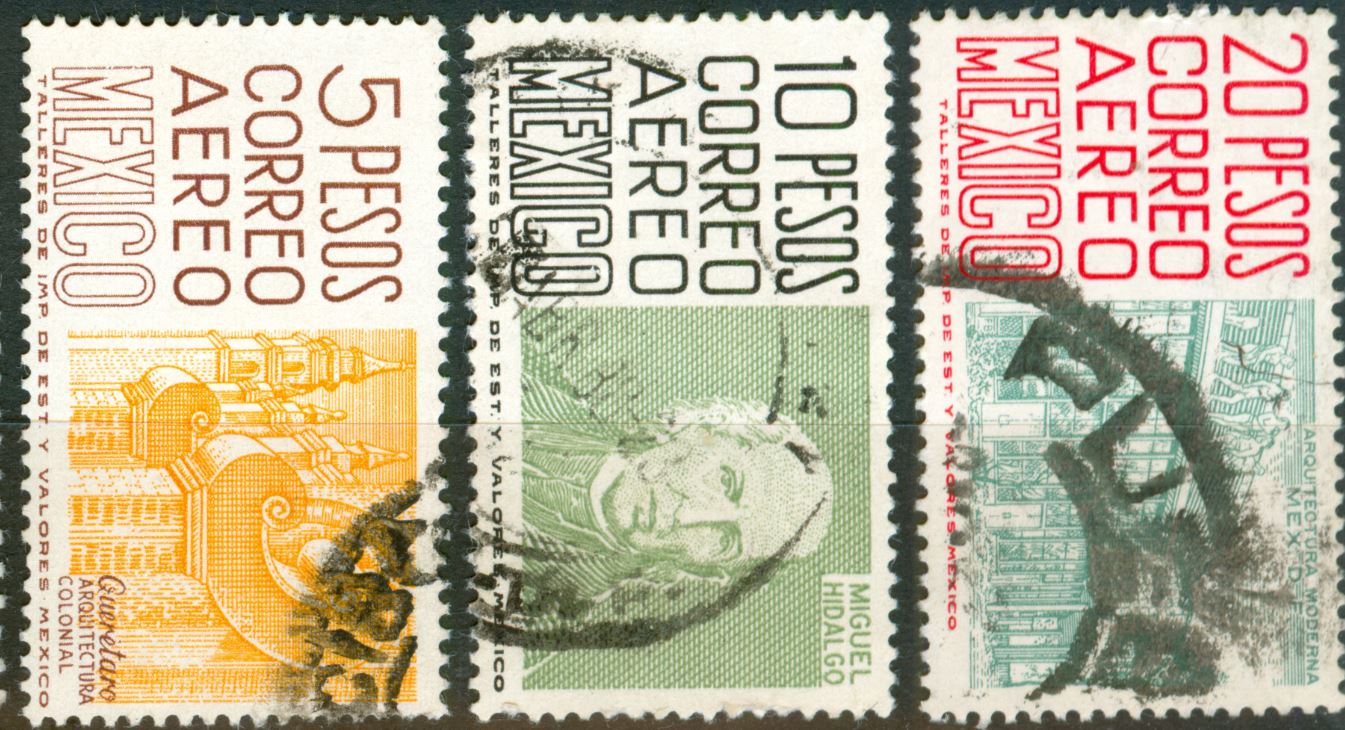
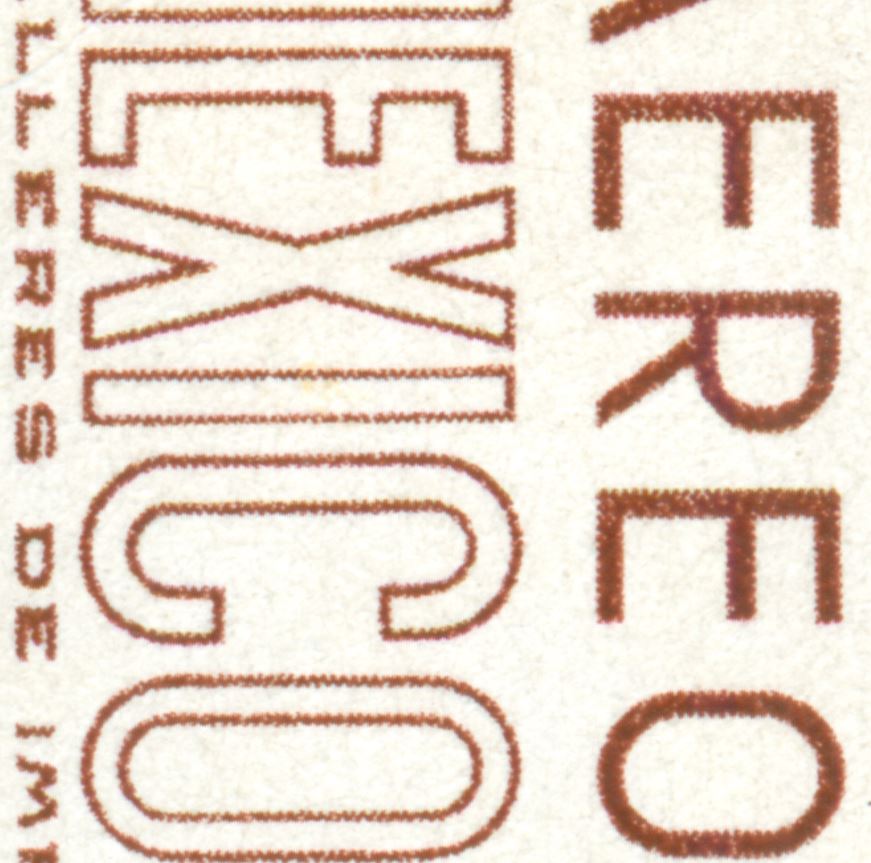
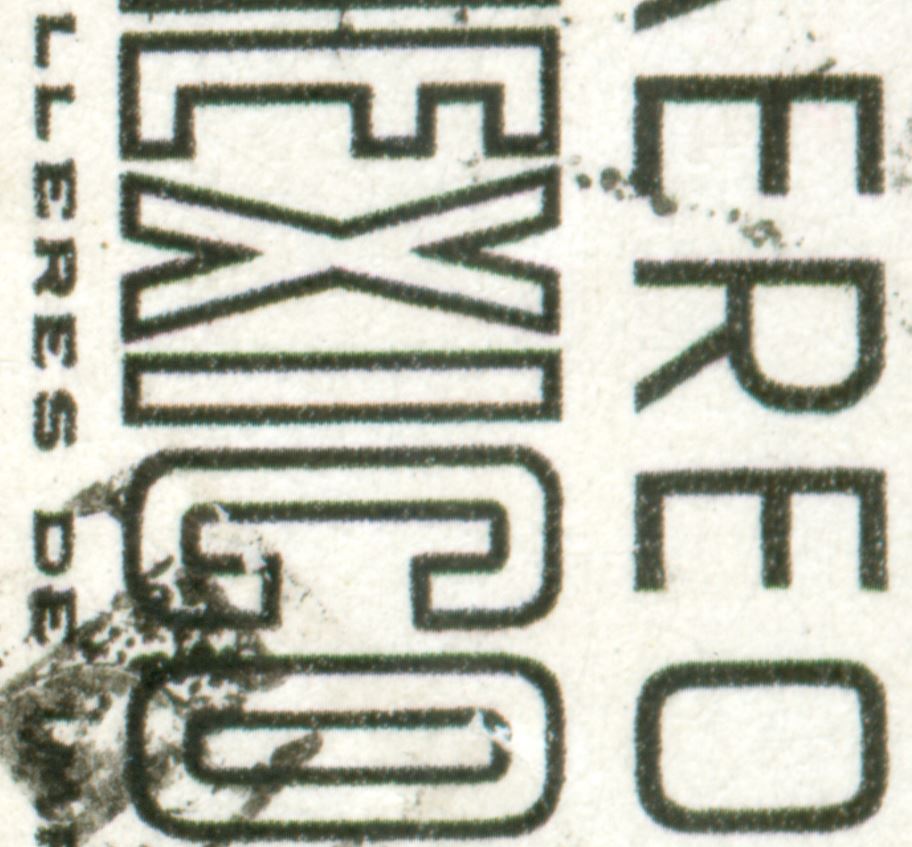
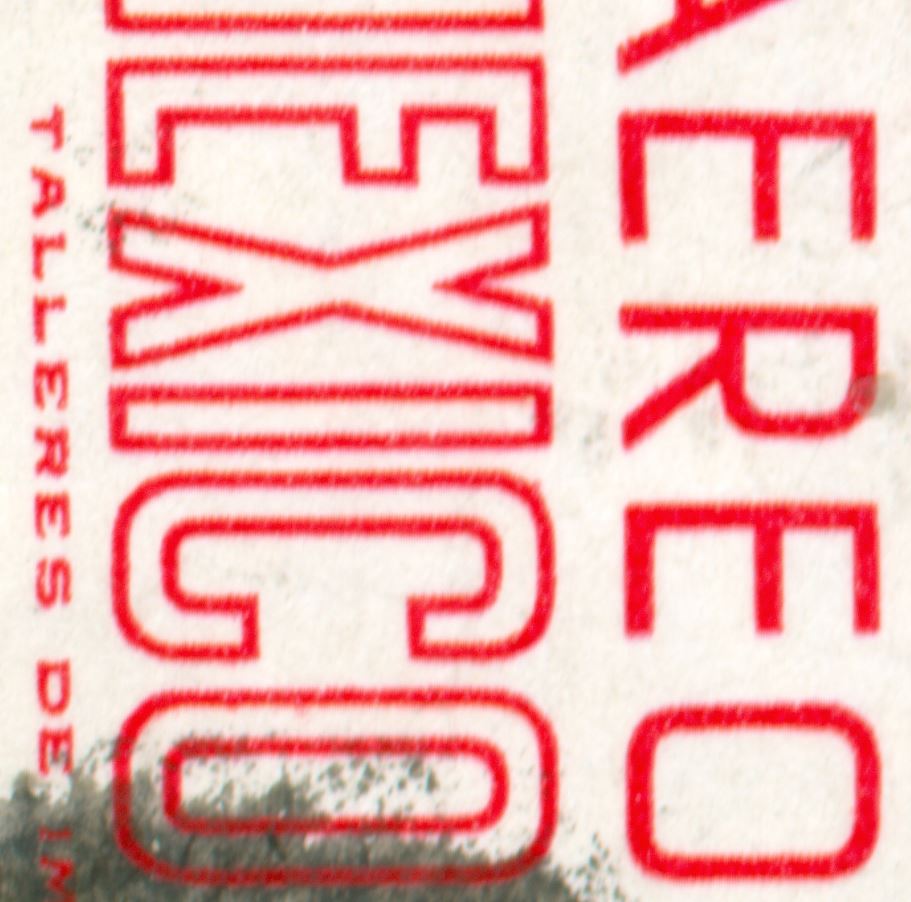
Papel #1A is what is called Americano by Mexico Export collectors, papel #1B has not yet been recognized as such by M.E. collectors but probably comes from Samuel Jones,UK.




- Rein
- Usuario Colaborador

- Mensajes: 6258
- Registrado: 13 Mar 2009 15:59
- Ubicación: Leiden, Netherlands
- Contactar:
Re: Mexico 1950 definitives - Architecture
Paper 1A starts with DF Sarmiento [1975] and ends with Aguascalientes [1975].
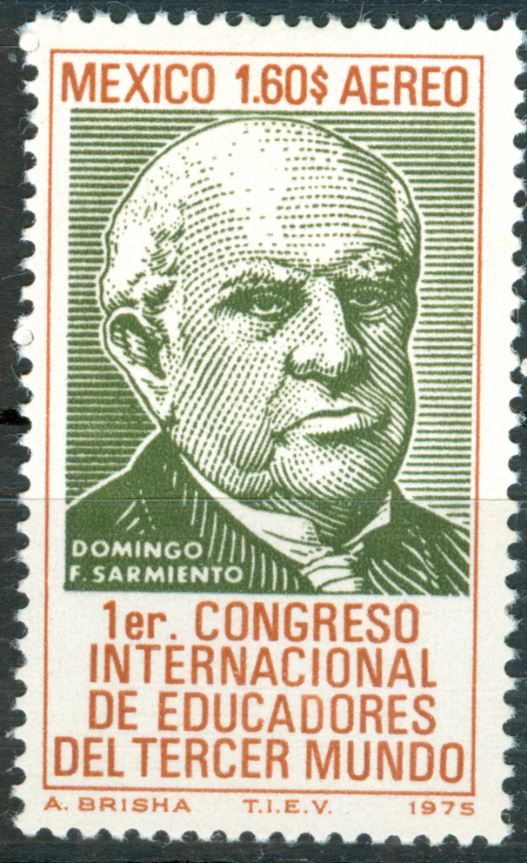
The front surface is very smooth i.e. no grooves but just an impresion of some grillado! The back of the stamp has a moon landscape with tiny craters!
Paper 1B has a lot of grooves at the front, the back has a moon landscape as well.
The paper is slightly thicker! It starts with the Supreme Court [1975] and ends wit the Electricty Commision [1977].
The only Mexico Exporta stamp I have so far is the 50c Partes Automotrices.

The front surface is very smooth i.e. no grooves but just an impresion of some grillado! The back of the stamp has a moon landscape with tiny craters!
Paper 1B has a lot of grooves at the front, the back has a moon landscape as well.
The paper is slightly thicker! It starts with the Supreme Court [1975] and ends wit the Electricty Commision [1977].
The only Mexico Exporta stamp I have so far is the 50c Partes Automotrices.
- Rein
- Usuario Colaborador

- Mensajes: 6258
- Registrado: 13 Mar 2009 15:59
- Ubicación: Leiden, Netherlands
- Contactar:
Re: Mexico 1950 definitives - Architecture
Both 1A and !B have gum arabic!!! Not synthetic gum! The broken gum lines - typical for gum arabic - are ascending for 1A and descending for 1B in portrait designs !
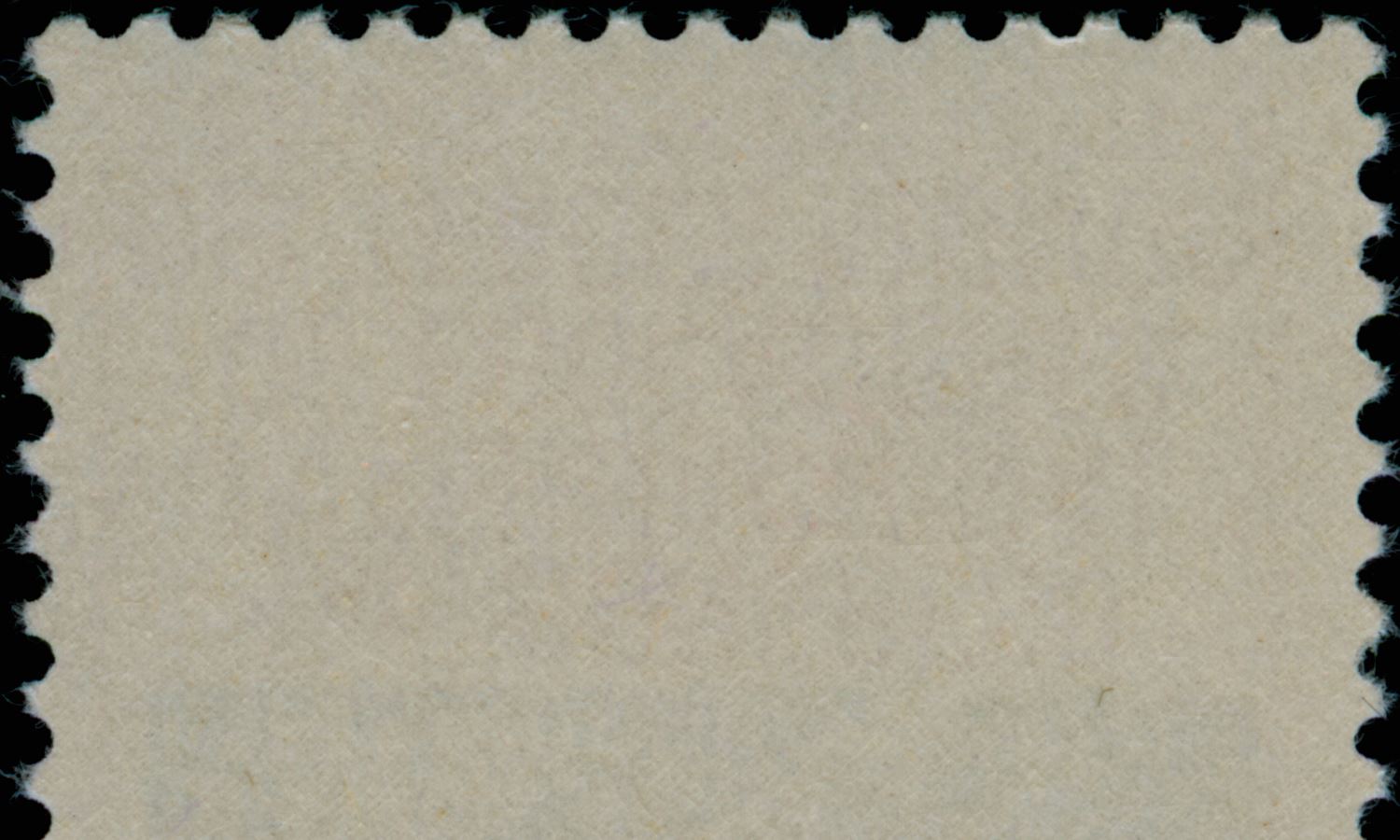
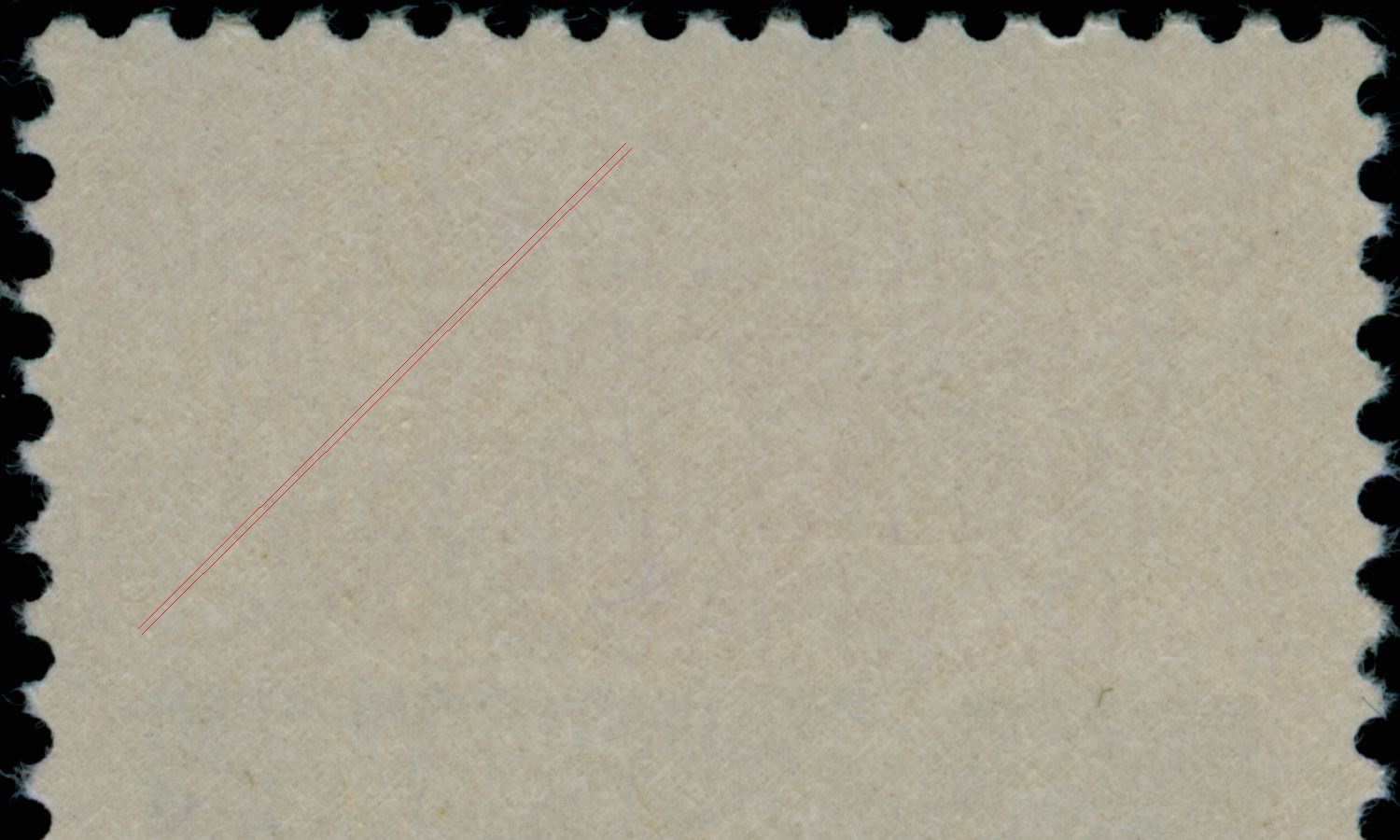


- Rein
- Usuario Colaborador

- Mensajes: 6258
- Registrado: 13 Mar 2009 15:59
- Ubicación: Leiden, Netherlands
- Contactar:
Re: Mexico 1950 definitives - Architecture
Plate flaws are often multipositive flaws i.e. they are present already in the film that contains 50 stamp designs. From that multipositive film these flaws can land on every cylinder that was prepared with that film!! Irrespectively of the type of screen glass or film. Or its gauge!
Especially when the "flaw" itself is screened it is most likely NOT a flaw that occurred on the cylinder because of some damage....
Therefore it is NECESSARY to show us the flaw in the highest detail or resolution so - by its screening - we can exclude the multipositive flaws...
The below flaws come from different cylinders as can be seen by the screen pattern in the text! And even in the flaw itself!
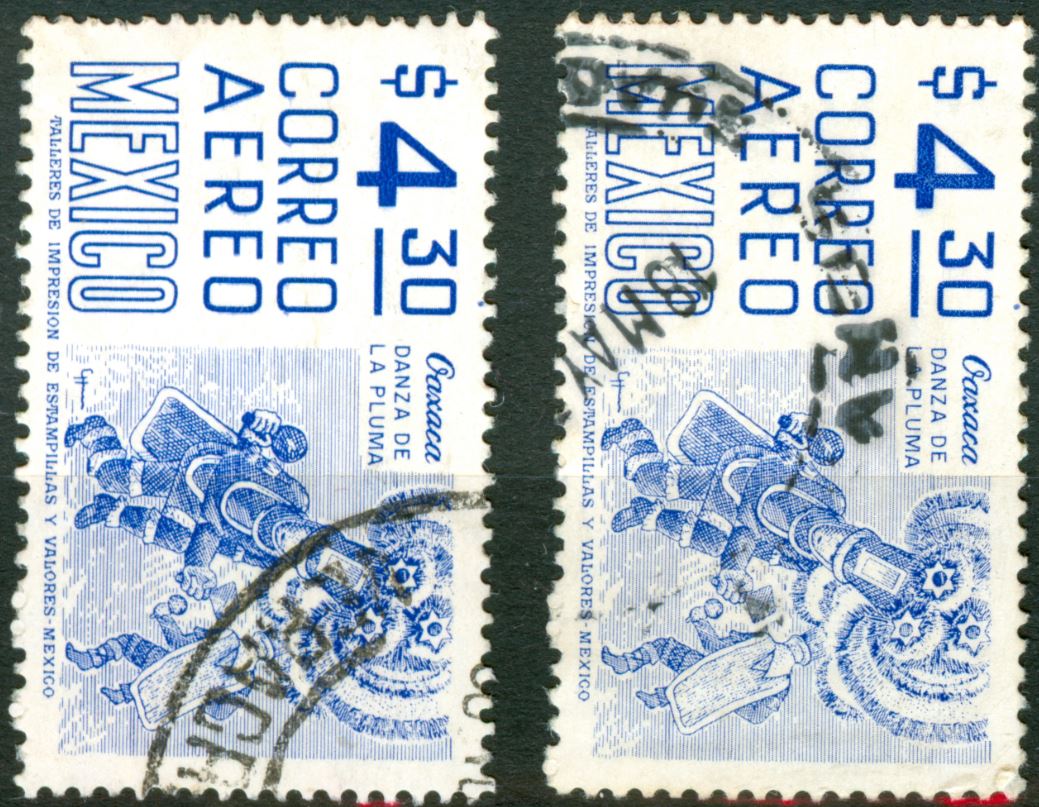
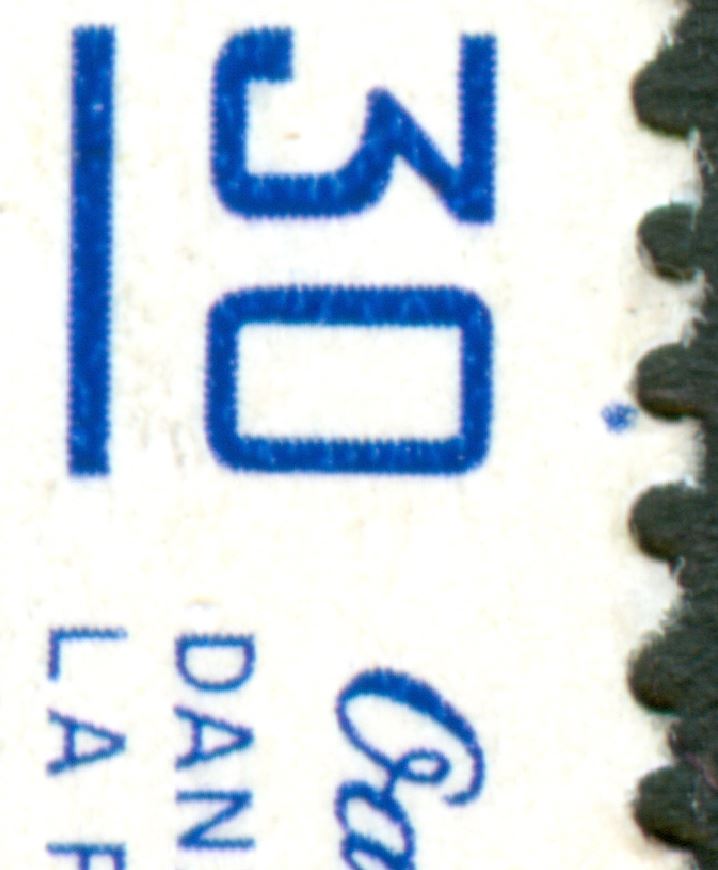
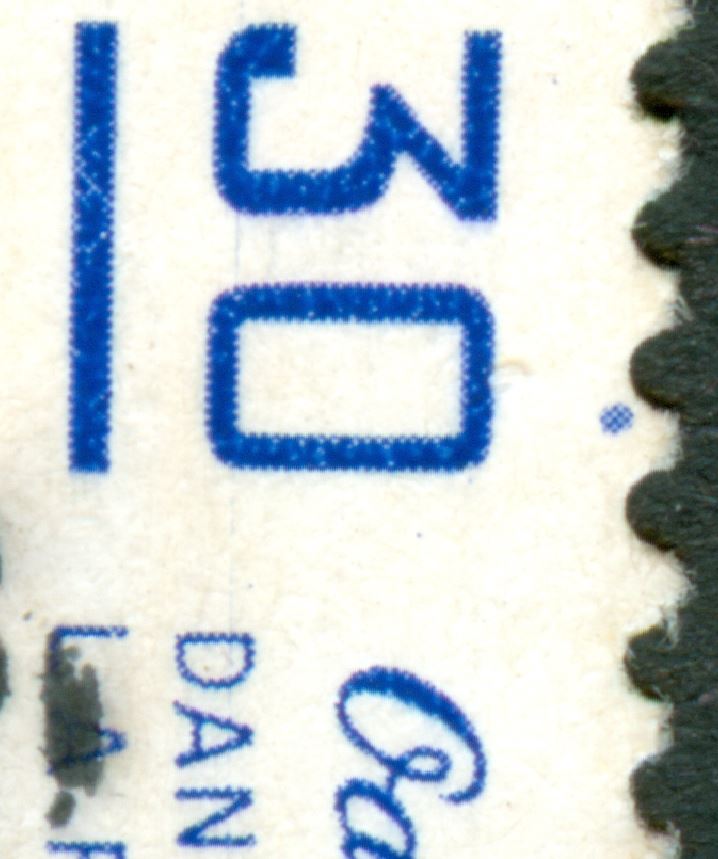
Especially when the "flaw" itself is screened it is most likely NOT a flaw that occurred on the cylinder because of some damage....
Therefore it is NECESSARY to show us the flaw in the highest detail or resolution so - by its screening - we can exclude the multipositive flaws...
The below flaws come from different cylinders as can be seen by the screen pattern in the text! And even in the flaw itself!


